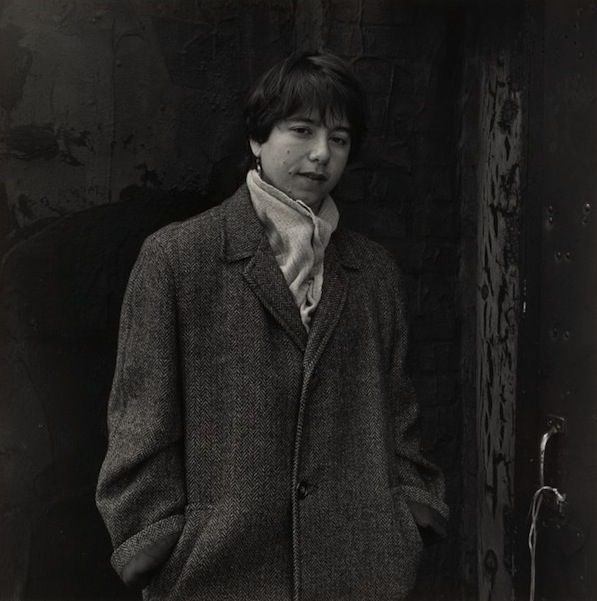Archive | Quoth the Raving
The Farewell Symphony, Across Space and Time
 As Joshua’s words come echoing across the water and down the years to me, I can’t help thinking that his life was not just his finest thoughts about poetry and friendship, expressed in a style that rejected forcefulness in favor of sympathy, but it was also comprised of his long mornings in his dressing gown with his telephone, newspapers, the Hu Kwa smoked tea and the little sterling-silver strainer that sat in its drip cup when it wasn’t straddled across a cup catching leaves. His life was made up of his pleasure in the morning glories as well as his hilarity ….After [his death] I looked through all the letters I’d ever received from Joshua and I realized I’d been unworthy of him then, that he’d been sending them through time to me as I would become years later. –Edmund White, The Farewell Symphony
As Joshua’s words come echoing across the water and down the years to me, I can’t help thinking that his life was not just his finest thoughts about poetry and friendship, expressed in a style that rejected forcefulness in favor of sympathy, but it was also comprised of his long mornings in his dressing gown with his telephone, newspapers, the Hu Kwa smoked tea and the little sterling-silver strainer that sat in its drip cup when it wasn’t straddled across a cup catching leaves. His life was made up of his pleasure in the morning glories as well as his hilarity ….After [his death] I looked through all the letters I’d ever received from Joshua and I realized I’d been unworthy of him then, that he’d been sending them through time to me as I would become years later. –Edmund White, The Farewell Symphony
Maybe it’s this unyielding time of year, but lately there’s just been so much death all around me. Rather than feeling shocked by these losses, I have begun to accept them as commonplace, albeit painfully so. Herein lies what Jane Smiley once termed the Age of Grief. That point in our lives when those who served as our grownups begin to sicken and fade, leaving us to step into their shoes. When we lose the only ones who remember us as little and effortlessly dear, the only ones who forgive us our sins as youthful folly–who regard us with the hope and fear and involuntary affection with which every generation regards the next. I suspect most of what these people taught me I only roughly comprehend now. And I hope fervently that someday I, like White, will become the person whom their best selves were already addressing.
4/28/16 Note: I wrote this post more than eight years ago, when almost all the people I’d lost had been members of the preceding generation. Since then, I have lost so many peers: dear friends and lovers, estimable colleagues, cultural heroes, even frenemies whom I didn’t know I cherished until they were gone. The sting is just as strong if very different. Closer to home, closer to the fabric of daily life–closer, period. The rebels who shared your causes, the horizontal (not vertical) allies, the casual companionship and shorthand, the luxury of taking each other for granted, the shared delusions of immortality and shared firsts, the bodies, the bodies you shared: These losses are so core. I am saddened to recognize that this White passage resonates on new levels but even more awed by what he captured.
Why I Embrace a Woman’s Thirties/Why I Embrace Schulman at Any Age
 I watched her skin, primarily, and the way her wrists moved. She had the manner of inner grace and intelligent beauty that women only begin to realize in their late thirties. Everything is texture and wise emotions. It was in her voice, her gestures, in every habit. A certain familiarity with obstacles. She glanced, not fleetingly from side to side, but up and down, to herself and then back to me. Her eyes were deep and tired with wrinkles from the sides like picture frames. Beatriz’s veins stood away from her neck and those thin wrists, so beautiful — there I could see every sorrow and useful labor. I got excited for the first time in a long time, realizing that this was in my future as well. Not just knowing her, but myself, becoming that beautiful. It had been too long since I had such hopeful imaginings.
I watched her skin, primarily, and the way her wrists moved. She had the manner of inner grace and intelligent beauty that women only begin to realize in their late thirties. Everything is texture and wise emotions. It was in her voice, her gestures, in every habit. A certain familiarity with obstacles. She glanced, not fleetingly from side to side, but up and down, to herself and then back to me. Her eyes were deep and tired with wrinkles from the sides like picture frames. Beatriz’s veins stood away from her neck and those thin wrists, so beautiful — there I could see every sorrow and useful labor. I got excited for the first time in a long time, realizing that this was in my future as well. Not just knowing her, but myself, becoming that beautiful. It had been too long since I had such hopeful imaginings.
–Sarah Schulman, After Delores
Just when we women become salty and beautiful is when the real Ophelia Syndrome kicks in, and it’s just so unnecessary. I’m tired of even talking about it, honestly, but since we female-identified persons (not just biological women) climb into true adulthood ever-apologetically, I am grateful when I stumble upon a passage or a song or a person that reminds us that our daily iridescence only becomes a matter of fact when we’re old enough to know who we are. Schulman does so in every line of her work.
She has an ability to nail truth; a passion for lowdown New York as if it were as distinct from the rest of the globe as the Earth is from the rest of the solar system (and as if leaving it were as difficult); and a love of women that is specific and fierce and generous and still, somehow, not self-obliterating. There is something crummy and self-pitying about her characters until you grasp that the misery and sisteroutsiderness they channel are necessary to produce their steady onslaught of insights. The full-frontal honesty that has been deplored in me exists as her finest attribute so I cling to her baggy Levis as if she were a spiritual big sister. She writes in a series of snapshots that connect to each other through the pussy and the heart, and their timeliness and timelessness read at first as casual but turn out to be irrevocable. I challenge you to connect to all of it. To try, at least. Just the effort will sneak up on you worthily.

